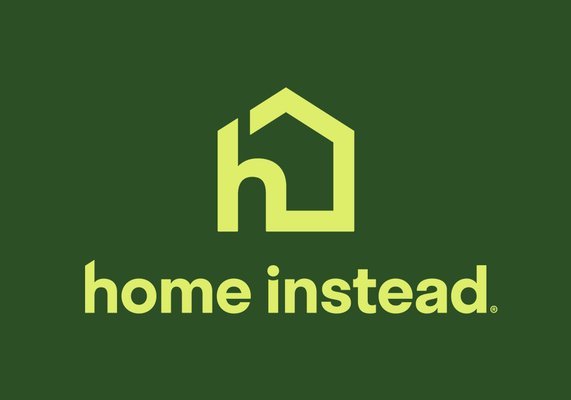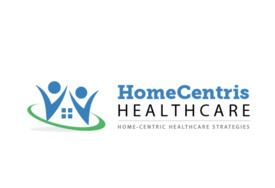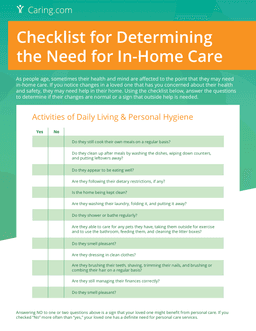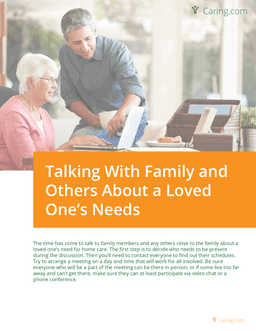
10031 Old Ocean City Blvd, Berlin, MD 21811
4.5
(13 reviews)
"Very professional; helpful and proficient, Very happy with their services,"
Pricing not available
Caring.com offers a free service to help families find senior care and ...

10031 Old Ocean City Blvd, Berlin, MD 21811
4.5
(13 reviews)
"Very professional; helpful and proficient, Very happy with their services,"
Pricing not available

206 E. Main Street Office C , Salisbury, MD 21801
Pricing not available

106B Williamsport Cir, Salisbury, MD 21804
4.6
(54 reviews)
Pricing not available

12 Pitts Street , Berlin, MD 21811
4.0
(1 reviews)
"My parents are at ease with the caregiver from Visiting Angels. She seems to be interested in my mother and she seems to be very able to talk with her. We've only been working with them for two weeks. "
Pricing not available

10441 Race Track Road, Berlin, MD 21811
4.6
(158 reviews)
Pricing not available

29787 John J. Williams Hwy #5, Millsboro, DE 19966
5.0
(2 reviews)
"We have been using Families 1st Choice. It is only a couple of days a week and is intermittent depending on the health of my father. The manager comes with the caregiver every once in a while to check on things. They provide non-medical services like cleaning, light cooking, and straightening around the house. They are also watching my father walk around a little bit and making sure he is OK. They take him to the store, help him shop, and come home and sort the food out. The billing and pricing are excellent so far. They're very good."
Pricing not available
Caring's Family Advisors are here to help you with questions about senior living and care options.

142 East Market Street 1st Floor , Georgetown, DE 19947
4.7
(104 reviews)
Pricing not available

12614 Whispering Woods Drive, Ocean City, MD 21842
5.0
(1 reviews)
"i contracted with this care provider for my mom. They were very helpful, very organized and caring. "
Pricing not available

204 Cedar St, Cambridge, MD 21613
Pricing not available

601 LOCUST STREET # 401, Cambridge, MD 21613
Pricing not available
The 2021 Genworth Cost of Care Survey indicates that Salisbury’s average home care cost is identical to the national average of $4,957 per month. Salisbury compares favorably to Maryland as a whole, which has a slightly higher average cost. The same goes for Salisbury in comparison to Hagerstown, a city in the state’s western portion. Another western Maryland city is Cumberland, whose home care providers match Salisbury’s in terms of average price. To Salisbury’s northwest, Baltimore’s average rate is identical to Salisbury’s as well. Across the Chesapeake Bay from Salisbury, California has typical prices that are several hundred dollars lower.
Salisbury
$4,957
Maryland
$5,148
United States
$4,957
Hagerstown
$5,148
Cumberland
$4,957
Baltimore
$4,957
California
$4,576
In Salisbury, home care and home health care have the same average price — despite the fact that the latter includes light medical services provided by nurses and other professionals. Assisted living is slightly more expensive than in-home care arrangements, while nursing home care includes skilled nursing services for more than twice the cost. The most affordable service is adult day care, though it requires seniors to travel to a care venue.
Home Care
$4,957
Home Health Care
$4,957
Adult Day Health Care
$1,895
Assisted Living Facility
$4,980
Nursing Home Facility (semiprivate room)
$10,600
Given the high cost of in-home care, many people use one or more forms of financial assistance to cover the expenses. Below, we explain some of the most common sources of financial help for paying for in-home care. If none of these options are available to you, you can reach out to your Area Agency on Aging or Aging and Disability Resource Center to learn about local resources.
Home care services are only one of the pieces needed for seniors to gracefully age in place. There are many services and programs that are low-cost or free, that enable seniors to enjoy an independent lifestyle in the comfort of their own home, such as help with home modifications, meal delivery services, and more. Below, we’ve compiled a few of the most helpful resources in Salisbury:
| Resource | Contact | Address | Service |
|---|---|---|---|
| Wicomico County Emergency Rental Assistance Program | (410) 548-4801 | 125 North Division Street, P.O. Box 870, Salisbury, MD 21803-0870 | The Office of the County Executive for Wicomico County uses federal funding to assist county residents in paying utilities and rent during personal financial emergencies. This program is available to both elderly and younger residents, but there are several eligibility criteria: a demonstrated risk of housing instability, income that’s 80% or less of area median income as defined by HUD, and an obligation to pay rent for a residential home. The office’s website lays out the exact annual income quantities per household size that determine program eligibility. |
| Maryland Weatherization Assistance Program | (410) 749-1142 | 520 Snow Hill Road Salisbury, MD 21804 | Funded federally and with state support, Maryland’s Weatherization Assistance Program is administered by the Maryland Department of Housing and Community Development and delivered through regional community action agencies. Preferential enrollment is given to low-income families and low-income adults 60 years of age or older. Elderly applicants receiving Supplemental Security Income are automatically eligible, but any household earning less than $25,760 for a single-person home or $34,840 for a two-person home may apply; income limits continue to increase with household size. These services are provided free of charge. |
| State Health Insurance Assistance Program | (410) 742-0505 | 301 West Preston Street, Suite 1007, Baltimore, MD 21201 | The Maryland State Health Insurance Plan offers assistance and counseling support for elderly Maryland residents and their caregivers. The program’s one-on-one consultations can assist seniors with understanding financial assistance options, aspects of Medicare coverage, fraud prevention, billing issues and eligibility options for different associated health programs. Counselors are trained to offer impartial, unbiased advice. |
Aging can be a difficult process, and loved ones may not always ask for help – oftentimes it’s up to their family to evaluate their need for help around the house. While no two situations are exactly alike, this checklist can help you and your loved ones determine when it’s time to start the search for a home care provider.


If you’ve determined that your loved one needs the assistance of a care provider in their home, it may be time for a difficult conversation. Handled correctly, however, this process can bring a family together and ensure that everyone’s concerns are addressed. Use this PDF as a starting point to help the conversation stay as positive and productive as possible.


Home Care
Laverne H_1
5.0
Review of Visiting Angels - Eastern Shore, MD
I would recommend it because they are great at what they do, the caregivers. They are on time and I like how they care for him.
Home Care
Susan G_35
5.0
Review of Visiting Angels - Eastern Shore, MD
I like that they are able to accommodate everyone in all locations. They are willing to drive farther for us in remote areas. I don't have to worry about whether they are going to show up or if...
Home Care
William T_25
4.0
Review of Visiting Angels - Eastern Shore, MD
I am pleased with the agency. It helps to have the help.